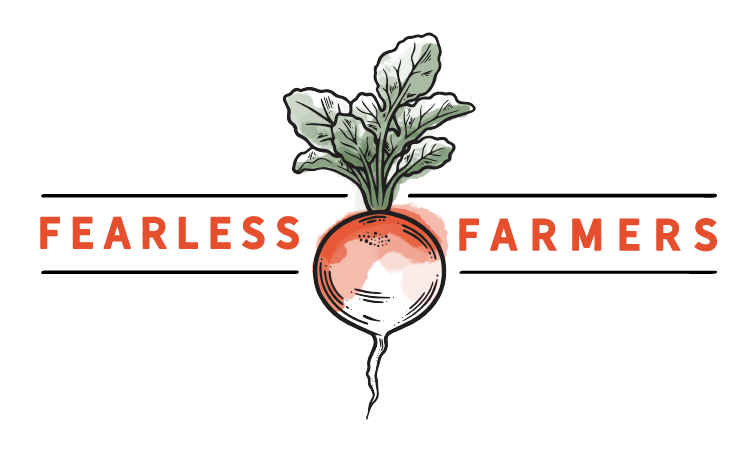“Every human society relies on groups to make important decisions, as groups have more problem-solving resources than any individual member.”
We need the best problem-solving abilities human communities have available…
Building 1000 Thriving Communities by 2030
We believe in a Thriving Future, where citizens will flourish socially and economically, in harmony with the environment. We are realizing this future by building Thriving Communities— places where citizens are exercising holistic decision-making in an eco-literate context.
Thriving Communities are sparked by an ecosystem connecting Educators, Farmers, Community Leaders, and Youth through regenerative mindsets and multidimensional decision-making.
At Fearless Farmers - we establish this ecosystem and help it take root for resilient, sustainable community evolution.
Meet Amy Milliron
Amy is our fearless founder and Executive Director, leading Fearless Farmers with an unwavering passion for building communities where people and planet thrive. Rooted in an educational background that includes all ages, from public schools to homeschooling and curriculum design, Amy’s deep commitment to experiential learning shapes every program we offer.
Her journey into eco-literacy, regenerative agriculture, and holistic management was sparked by a personal realization—witnessing the growing disconnect between people and the natural world and the impact that disconnection had on health. Growing her own food was a lifelong passion, and after years of trials (literally) and tribulations, Amy and her family got a piece of land and started farming regeneratively.
After witnessing the profound impact of her homeschool programs, summer camps, classes, and tours on families in her community, Amy saw how her farm could serve as a grounding force. What began as a localized endeavor soon grew into a broader movement that inspires communities through education to shift their worldview, with a connection to food and farming at the core.
Amy embodies the outcomes of the Fearless Farmers program. She believes true transformation can happen when individuals, families, and communities understand their unique place of value in the ecosystem. With a fearless spirit and a dedication to holistic education, Amy continues cultivating spaces where transformational learning is rooted in curiosity, connection, and action.
How We Work
Locate a Spark
Grow a community around the Spark
Support and amplify your efforts
But, we don’t do this alone…
Partnerships Spark Change
Sparking a community forward into a Thriving Future is a team sport. Fearless Farmers is always looking for synergistic opportunities with like-minded organizations, communities, educators, and civic leaders.
Educators, School Districts, & Homeschool Administrators
Learn about training your team with us to be able to deliver our curriculum within your program on an ongoing basis!
Community Changemakers
Undertaking an initiative that is sustainability or regeneration focused in your community? Need specialized content to shift mindsets alongside your efforts? Contact us to customize a solution to accelerate your vision.
Farms, Community Gardens, and Food System Stakeholders
Deepen your connection to your community and enhance your food system economics to enrich the foundation of your Thriving Community. Fearless Farmers can help you add educational activities into your business; connect you with farms and gardens in our network already solving your key challenges; and catalyze the engagement of educators, youth, and civic leaders in your community to join you on your journey.
Got something else in mind? No problem! Reach out with your idea and we’ll be happy to discuss it.






